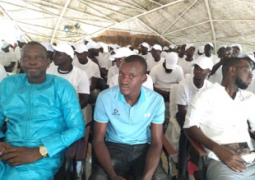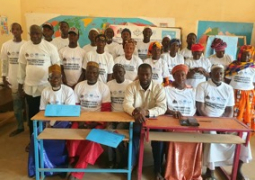
She added that in 2022, the ‘In-Shell’ production in The Gambia was estimated at 8,125 tons.
Ms Rampedi made the remarks during the FISH4ACP project launch.
She said the oyster upgrading strategy launch is an important milestone for the FISH4ACP programme. The launch brought together value chain actor representatives and other organizations involved in the development of the value chain.
“By 2032 there will be a vibrant and sustainable oyster sector in The Gambia with oyster value chain actors being resilient to potential shocks and generating profits through an increase in production and enhanced value addition,” she stated.
She said the oyster project will enable value chain actors adopt new oyster farming practices, expand oyster operation, create a secure environment, ensure a strong sector management and implementation as well as monitoring of the value chain upgrading strategy.
Evangelina Blanco, Programme Officer for the European Union delegation to The Gambia said they are proud to support the process, noting that the time has come to increase the benefit of the oyster value chain in The Gambia.
She explained that it is important to develop the value chain to stabilise and increase women employment in the oyster sector. She added that the value chain should take a greater share in the fisheries and aquaculture sector especially food security and employment.
Fanta B.S. Manneh, Deputy Permanent Secretary at the Ministry of Fisheries said the development of the fisheries and aquaculture value chain is sustainable with direct positive socio-economic and environmental impact for communities that depend on aquatic resources for their livelihoods.
“The number of bottlenecks has to be overturned to include access to markets, food security, value addition, working condition and the risk of overexploitation,” she highlighted.
She emphasised that the upgraded strategy of value chains will include all facets of the oyster industry to make the fisheries sustainable.
Read Other Articles In National News





